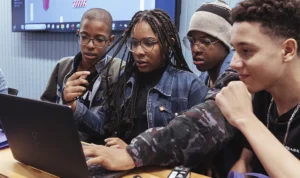In January, the law establishing a National Digital Education Policy (Pned) in Brazil, which seeks to expand access for Brazilians, especially the most vulnerable populations, to digital resources, tools and practices, informs the Brazil Agency.
Approved by Congress, the law was sanctioned by the President of the Republic and aims to articulate programs, projects and actions to increase technological inclusion in municipalities, States, the Federal District and the Union.
The objective of this new policy is to develop digital skills through four axes of action. The first of them is the digital inclusion, or the guarantee that the entire Brazilian population has equal access to digital technologies.
A school digital education is the second axis, focusing on encouraging and reinforcing digital literacy and digital skills at all levels of education and as part of lifelong learning. And the third is digital training and specialization to bring knowledge to the job market.
Digital research appears as the fourth axis of Pned. Here, the concern is to ensure conditions for the production of new knowledge and the active participation of Brazilian researchers in international Research and Development (R&D) networks and programs.
Several actions are planned to follow these axes. These include raising awareness regarding the rights to the use and processing of personal data, as well as promoting secure connectivity and data protection of the most vulnerable population, especially children and adolescents.
Vetoes to the law
To make Pned's activities viable, the law provides for both the use of resources from the Union, states, the Federal District and municipalities as well as public or private donations —in addition to the Fund for the Technological Development of Communications and, from January 1, 2025, the Fund for the Universalization of Telecommunications Services.
At the request of the Ministry of Education, the sanctioned law received three vetoes. One of them is related to the section that predicted that digital education would be a curricular component of primary and secondary education, with the teaching of computing, programming and robotics, for example.
According to the government, for this to happen, the content must first be submitted for approval by the National Education Council and the MEC.
The section that predicted that Fies (Student Financing Fund) would prioritize short-term immersion programs in computational techniques and languages was also vetoed.
In this case, the government understood that priority is not necessary, as there is no impediment for Fies to finance these courses.
Finally, there was a veto regarding the definition of what a book is. With new formats and new technologies, the topic is being discussed in a bill currently being processed in the National Congress.


